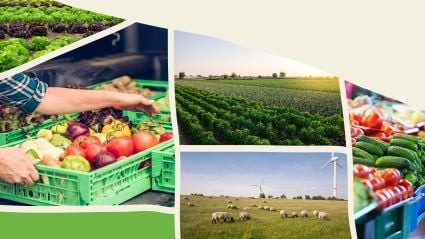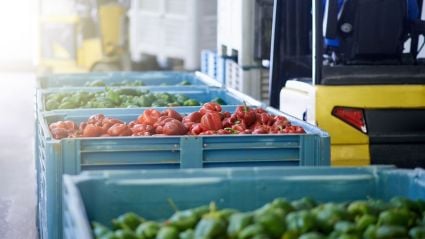Investing in the intersection of food and healthcare is critical to achieving nutrition equity. Feeding Change submitted a letter informed by the Food Is Medicine Task Force that provides comments to inform the national strategy for the White House Conference on Hunger, Nutrition, and Health. The letter aims to address the priorities of a broad patient population, including beneficiaries of federal health and nutrition programs and those at risk of experiencing economic and nutrition security. All recommendations are centered around elevating the patients’ voice and reducing barriers to ensure the most vulnerable can access and maximize FIM benefits. Additionally, the recommendations seek to expand the breadth of coverage for FIM interventions to include multiple types of nutrition prescriptions that address the full spectrum of diet-related disease and health condition care.
Read the Letter

Holly Freishtat
Related Content
-

A Blueprint for Employer-Led Food as Health Strategies
Employers are increasingly recognizing how food can promote whole-person health by addressing physical well-being, resilience, disease prevention, and mental health.Read Report -

How Health Care Can Lead the Food Is Medicine Movement
Food and nutrition insecurity is a health issue far too big to ignore. Diet-related diseases are the leading cause of death in the US for adults. When people and communities lack access to affordable, healthy food, we see the impact in our...Read Essay -

Perspectives on a Natural Capital Approach to Financing Food Systems Transformation
In September 2024, the Milken Institute released Insights on Investments in Food Systems Transformation: Pathways to COP30, which explored the state of food systems investing, the risks and benefits, and the challenges and opportunities.Read Report -

Rooted in Health: How Agriculture and Health Care Can Grow Together
With chronic diseases on the rise and millions struggling with food insecurity, access to fresh, nutrient-rich fruits and vegetables has become more critical than ever. The "Food is Health" movement is reshaping how we think about health...Read Essay -

How Philanthropy Can Build Resilient Food Supply Chains
From the COVID-19 pandemic to geopolitical conflicts, and catastrophic steering failures on cargo ships, as reported by NPR and The New York Times, the world has seen how a weak link in a supply chain can have far-reaching consequences for...Read Article -

Bridging Gaps to Improve Food Access and Convenience
Whether evaluating access to health care, transportation, or healthy foods, there is a disproportionate impact in underserved communities. For example, nearly 24 million people live in food deserts in the US, low-income communities located...Read Essay -

Farm Bill Policy Brief
Feeding Change is a team of food-system experts within the Milken Institute, a nonprofit, nonpartisan think tank, who activate social and financial capital, engage policymakers and industry leaders, and convene key stakeholders to catalyze...Read Brief -

Financial Innovations Lab: Market Solutions for Scaling Food Is Medicine Prescriptions
Diet-related chronic disease continues to rise throughout the US population and, with it, the cost of health care. Despite record spending, the US experiences the lowest life expectancy among high-income countries and demonstrates declining...Read Report

 MB
MB

-

Joneigh Khaldun, MD - Stories from the Field
1. Tell us about your background and career path. What brought you to CVS Health, what are some of your main responsibilities, and what do you find most rewarding about the role? I am a practicing emergency medicine physician in a busy...Read Article





